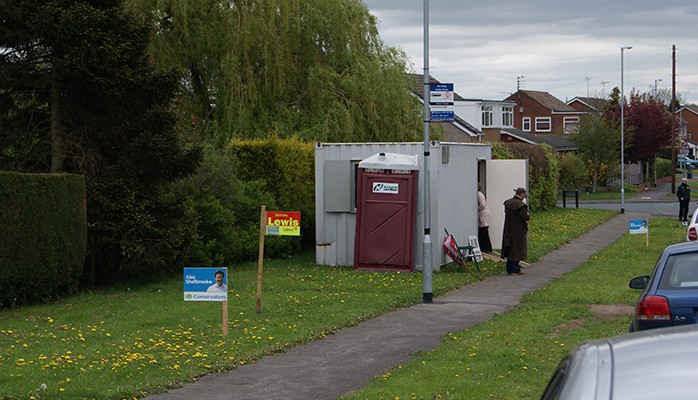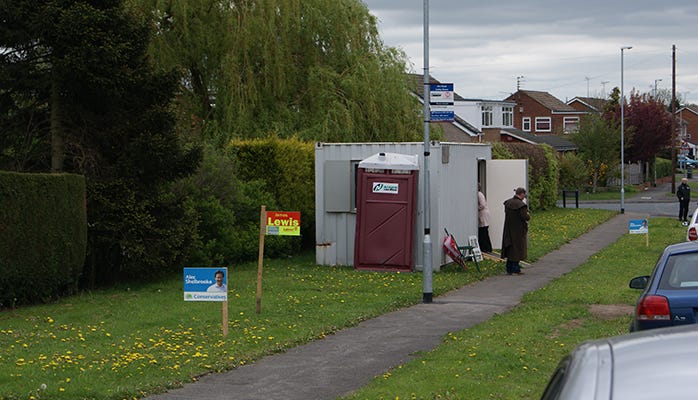It was appropriate that March’s Open Data Manchester meeting should focus on projects related to the forthcoming elections. Not only because the country goes to the polls next month but also that election data was the first area of interest when Open Data Manchester started five years ago. The release of election data by Trafford Council in 2010 started them off on their journey to become open data champions, and it is through forums such as Open Data Manchester and Social Media Cafe Manchester people became connected.
In 2015 there are a number of fantastic initiatives that try and unpick the proposed policies of the political parties, and filter through the fluff and bluster of our incumbent and prospective parliamentary candidates.
Digital and networked technology as well as access to data that is either open, scraped, scanned, manually transcribed or crawled, creates the opportunity to understand and analyse what is proposed and how parliamentarians have delivered on the promises of the past. Not only do these technologies allow us to be more informed but might also offer a way of building the policies of the future through novel forms of engagement and participation. Advocates for direct democracy see that creating opportunities for people to have a say in policy decisions makes for a more engaged society. Estonia’s Charter 12 and Iceland’s Crowd Sourced Constitution Bill are examples of these approaches in action. Both coming directly out of crises, where faith had been lost in the democratic process.
The need to re-enfranchise people into democratic participation is critical. In Manchester Central constituency where Labour candidate Lucy Powell was elected in a 2012 by-election, there was an 18% voter turnout. Without democratic mandate the legitimacy of government is vastly reduced. Which in turn has impact on the way the country is run and how people engage and align with the decisions of government.
There are many examples of projects in the UK that are seeking to make the sometimes arcane processes of government and its representatives more understandable. Notable in this space are the many projects that have been supported and developed by mySociety, with the stated aim of inventing and popularising digital tools that enable citizens to exert power over institutions and decision makers. Democracy Club, Full Factand Unlocking Democracy are active in this space, as well as a raft of people who volunteer their time and see the importance of making the election process more open.
- YourNextMP — Built by Democracy Club is an open database and API of candidate data
- Meet Your Next MP — Created by JMB Technology lists independent events and hustings in your constituency
- The Big Monitoring Project — Being developed by Full Fact seeks to record what politicians and the media says and hold them to account.
- ElectionLeaflets.org — By Election Leaflets, Unlocking Democracy and Democracy Club. Crowdsourcing a database of the leaflets that candidates shove through your door and what they say.
Many of these initiatives are looking for people to volunteer their time and expertise.
The subsequent discussions focussed on why people don’t engage and possible ways that technology can help. Many of the group had direct experience of trying to get social housing tenants to vote on matters that affected their tenancy due to a large housing stock transfer. Although the subject affects tenants in an immediate and tangible way there was difficulty engaging people who were not otherwise engaged. In the end staff from the housing association had to knock on doors and explain to people what they were voting for in order to get people to vote. This highlights the difficulty those working on engagement with the democratic process face. Ways of making the process easier were discussed but this led to a deeper exploration as to the nature of engagement. If we make voting easier does it change the nature and relationship between the voter and the subject being voted upon? Perhaps we are trying to look at the symptoms rather than the cause and a democracy based upon weak or passive interaction was not as strong as one where effort was needed to register an opinion. One of the group highlighted the difference between the situation in the UK compared to countries where engaged public discussion where part of life.
Making the democratic process more understandable is vitally important to engagement. Voters need to feel as though they have agency and that their decision has importance. A challenge faced when trying to decide who to vote for is cutting through the rhetoric masking policy. There is also difficulty in creating key comparators and metrics. How do we create an environment where we can compare what one person says over another and how can we understand the impact those position would make to our communities. It was suggested that if we could standardise certain aspects of a manifesto we would be able to compare across positions. This could then be overlaid on to data from local communities that has been modelled in a standardised way allowing direct comparison of potential impact. There are a number of challenges associated with this — such as the candidates local position might differ from that of the party.
There is a wealth of data that evidences the voting behaviour of incumbent MPs which could be used as a metric to judge the attractiveness of a candidate. This data is only available for incumbents and not those in opposition. Party politics can override the voting preferences of individual MPs and politicians often have to make difficult decisions that may be seen as undesirable. If an MP stated a position to which you voted for and then evidences a pattern of voting behaviour in office that doesn’t correlate, that information would be useful in helping you choose who to vote for.
Creating a service where you can map your own preferences with those of candidates and then follow the voting patterns of your parliamentary representative over time was deemed useful — allowing the user to understand the reasons why they voted for that candidate and whether, in light of those historic preferences, the candidate was a good representative.
Creating standardisation so that you can map candidates directly onto locality — assumes that the individual would act independently and not be whipped by the party.
Voting data also enables you to see how rebellious a candidate who doesn’t necessarily tow the party line is. A number of the group suggested that ‘Rebellion Ratings’ could be seen as a good indicator of principled behaviour, over the representatives desire to further their own political career.
Democracy Club is crowdsourcing the CVs of prospective candidates so that people get a better idea of who they are voting for. It was mentioned that this would be interesting to compare with the LinkedIn profiles of candidates. Comparing a professional business facing persona with one that has been created to garner public support.
There are a lot of excellent projects that are trying to make the process of government and the effectiveness of MPs more understandable. It would be interesting to see if some of these could be implemented at a local government election level. If people are more connected to their locality it would make sense to develop projects that help people to engage with local decision making. Perhaps this could be another front to fight disenfranchisement within the democratic process.


